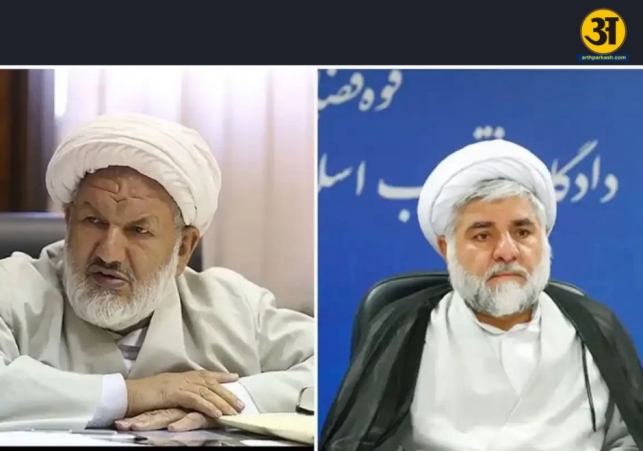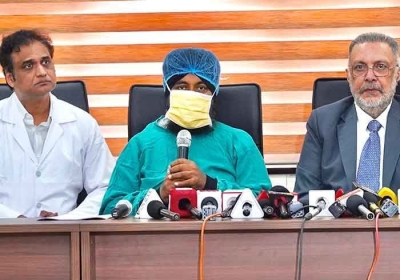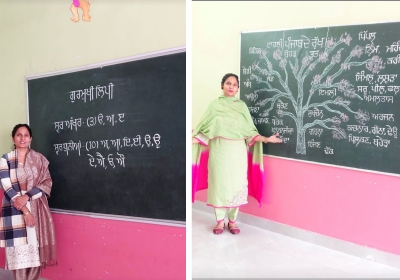
Iran Supreme Court Judges killed in Espionage Row
Two Iran Supreme Court Judges killed in Tehran amid espionage case scandal
On January 18, 2025, two senior judges of the Iranian Supreme Court, Mohammad Moghiseh and Ali Razini, were killed in a shooting incident in Tehran, the capital city of Iran. These judges were actively involved in handling espionage and terrorism cases that have drawn international attention, particularly due to their involvement in issues related to national security.
The incident
The attack took place on a Saturday when the two judges were inside the Supreme Court building. The assailant, whose identity is not yet fully known, opened fire on the judges, killing them instantly. After carrying out the attack, the shooter reportedly turned the weapon on himself, ending his own life. During the incident, a bodyguard of one of the judges was also injured, though no further details about the bodyguard’s condition were provided.
The Iranian judiciary, which confirmed the incident, identified the two victims as mid-ranking Shi'ite Muslim clerics Mohammad Moghiseh and Ali Razini. Both judges were prominent figures in the judicial system and had previously been involved in handling high-profile cases, including those related to terrorism and espionage.
The judges had long been involved in handling cases that were critical to Iran’s national security, particularly those concerning espionage and terrorism. Their work often focused on individuals and groups accused of collaborating with foreign powers, including those linked to Israel and opposition groups supported by the United States. Their roles in these cases had made them prominent targets of criticism and opposition, both within and outside of Iran.
According to Asghar Jahangir, the spokesperson for Iran’s judiciary, the two judges had been central figures in Iran’s efforts to crack down on espionage and terrorist activities. In the past year, the judiciary had intensified its efforts to identify spies and dismantle terrorist groups operating within the country. This increased scrutiny has sparked significant anger and resentment among those opposed to the Iranian regime, particularly foreign entities that have long been critical of Iran's domestic and foreign policies.
Jahangir remarked that the assassinations were likely motivated by this very crackdown. The judiciary spokesperson noted that the slain judges had been involved in cases that targeted individuals and organizations connected to hostile foreign powers, making them prime targets for extremist elements.
A closer look at the Judges
Mohammad Moghiseh
Mohammad Moghiseh, one of the judges killed in the attack, had been a controversial figure for many years. His involvement in cases that critics labeled as politically motivated had earned him a reputation among opposition groups as a judge who played a key role in sentencing political prisoners. Over the years, Moghiseh had been accused of overseeing trials that many believed lacked transparency and fairness. These trials were often criticized for targeting individuals accused of opposing the Iranian government.
Moghiseh’s work in espionage and terrorism cases had made him an important figure in the Iranian judiciary’s efforts to combat foreign interference. His involvement in cases concerning national security was a reflection of his prominence within the judicial system. While the exact motives for his assassination remain unclear, his role in such cases likely contributed to making him a target for those who opposed the Iranian government.
Ali Razini
Ali Razini, the other judge killed in the attack, had also been a key player in Iran’s judicial system. Razini was particularly notable for having been the target of an assassination attempt in 1998. Despite surviving the attempt, Razini continued to serve in his role, overseeing cases related to national security, including those involving terrorism and espionage. His resilience in the face of such threats highlighted his determination to continue his work, even in the face of personal danger.
Razini’s role in overseeing terrorism-related cases made him a prominent figure within the judiciary. Similar to Moghiseh, Razini had been involved in trials that critics viewed as politically charged. His death has raised questions about the extent to which the Iranian judiciary is willing to protect its members from external threats, particularly in cases that deal with national security and espionage.
Motives behind the assassination
While the exact motive behind the killing of the two judges remains unclear, several factors may have contributed to their targeting. As mentioned earlier, both judges were heavily involved in cases related to national security, including espionage and terrorism. These cases often dealt with individuals accused of espionage on behalf of foreign powers, particularly those with ties to Israel and the Iranian opposition groups that receive support from the United States.
The Iranian judiciary has been engaged in a lengthy and intensifying crackdown on spies and terrorists within the country. This effort, which has been part of Iran’s broader national security strategy, has drawn the ire of external forces that view Iran’s actions as an infringement on their interests. The judges’ roles in these high-profile cases may have made them particularly vulnerable to attack by extremist factions who sought to retaliate against Iran’s increasing efforts to root out foreign interference.
Additionally, the opposition has long criticized both Moghiseh and Razini for their involvement in what they describe as politically motivated trials. These critics argue that the two judges were instrumental in prosecuting political dissidents and activists, labeling them as enemies of the state. This perception of the judges as figures of repression may have contributed to their becoming targets for those who viewed their actions as harmful to Iran’s political landscape.
The assassination of these judges is taking place within the context of heightened tensions in Iran’s national security environment. Over the past year, Iran has made significant efforts to address what it sees as foreign interference in its internal affairs. This includes the identification and prosecution of spies and terrorists who are believed to be working on behalf of foreign governments.
ALSO READ: Ukrainian Air Defences shoot down 33 Russian Drones in overnight attack
ALSO READ: Faith in action: Gurdwaras, Churches, and Temples unite to support LA wildfire victims
These actions have garnered significant attention both within Iran and internationally. On the one hand, Iran has portrayed its efforts as a necessary measure to protect the country from foreign meddling, particularly from nations like Israel and the United States. On the other hand, critics argue that these actions are part of a broader strategy to silence political opposition and suppress dissent within the country.
The killing of Moghiseh and Razini serves as a stark reminder of the risks faced by those involved in national security cases. The fact that these two judges were killed in such a dramatic and public manner underscores the deep divisions within Iranian society and the challenges faced by the government in dealing with internal and external threats.
The death of these two senior judges is likely to have far-reaching consequences for Iran’s judiciary. As key figures in the country’s efforts to combat espionage and terrorism, Moghiseh and Razini were central to the judicial system’s handling of national security cases. Their deaths could result in a shift in how such cases are prosecuted in the future, particularly if their assassinations are seen as a sign of growing instability within Iran’s judicial system.
In addition to the impact on the judiciary, the killings may also have broader implications for Iran’s national security strategy. The murder of such prominent figures could signal an escalation in efforts by external forces or internal dissidents to challenge the Iranian government. As a result, Iran’s leadership may intensify its crackdown on opposition groups, further restricting political freedoms and targeting individuals seen as threats to the regime.
The Iranian government has yet to comment on specific plans to address the fallout from these killings. However, it is clear that the assassinations of these two high-profile judges will continue to shape the discourse surrounding national security and political repression in Iran.
The killing of Iranian Supreme Court judges Mohammad Moghiseh and Ali Razini is a tragic event that has raised questions about Iran’s national security, judicial independence, and the growing risks faced by those in positions of power. While the exact motives behind the attack remain unclear, it is likely that the judges' roles in espionage and terrorism cases made them prime targets for those opposed to the Iranian regime. As Iran grapples with the aftermath of this tragedy, the political and judicial landscape may undergo significant shifts as the country navigates the challenges posed by internal and external threats.





